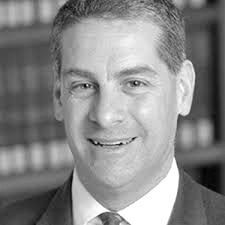If you are looking for the quintessential prophetic moment, it’s hard to beat the confrontation between King David and the prophet Nathan. The story is familiar: David sees Bathsheba, is smitten, and arranges to have her husband sent to the front lines to be killed, whereupon the king marries the woman. Nathan confronts David with his grotesque sin in the famous story of the rich man stealing the poor man’s lamb, and thunders, “That man is you!” (2 Samuel, chapters 11-12).
In Haftarat Chayei Sarah, however, we see not Nathan the Prophet, but Nathan the Political Operator. Aged King David is close to death, and Adonijah, the eldest of his two remaining sons, assembles an army and proclaims himself king. Nathan is committed to Solomon inheriting the throne, and hatches a plan to “persuade” the king to publicly declare Solomon as his heir. He meets Bathsheba, and tells her:
Now take my advice, so that you may save your life and the life of your son Solomon. Go immediately to King David and say to him, “Did not you, O lord king, swear to your maidservant: ‘your son Solomon shall succeed me as king, and he shall sit upon my throne’? Then why has Adonijah become king?” While you are still there talking with the king, I will come un after you and confirm your words.
Bathsheba does as she is asked (and adds more powerful rhetoric: no passive player she.). Then Nathan just happens to stop by the royal court, and with fake innocence asks David, “O lord king, you must have said, ‘Adonijah shall succeed me as king and he shall sit upon my throne…Can this decision have come from my lord the king, without your telling your servant who is to succeed to the throne of my lord the king?’”
What a coincidence. Whether or not David actually made the promise, in his dotage he cannot help but promise the two of them that Solomon will inherit the throne. “>made one of the greatest speeches in US history. If you are looking for a “prophetic” speech, this was it.
My friends, to those who say that we are rushing this issue of civil rights, I say to them we are 172 years late. To those who say that this civil-rights program is an infringement on states’ rights, I say this: The time has arrived in America for the Democratic Party to get out of the shadow of states' rights and to walk forthrightly into the bright sunshine of human rights….
….In these times of world economic, political, and spiritual — above all spiritual crisis, we cannot and we must not turn from the path so plainly before us. That path has already led us through many valleys of the shadow of death. And now is the time to recall those who were left on that path of American freedom.
For all of us here, for the millions who have sent us, for the whole two billion members of the human family, our land is now, more than ever before, the last best hope on earth. And I know that we can, and I know that we shall begin here the fuller and richer realization of that hope, that promise of a land where all men are truly free and equal, and each man uses his freedom and equality wisely well.
No one can fail to see the speech’s prophetic character. It even cites the Psalmist in searching for a cure to the world’s “spiritual crisis.”
But what really makes the speech prophetic is that Humphrey followed it up. Sixteen years later, as a United States Senator, he took on the complicated and politically dangerous task of shepherding the Civil Rights Act through Congress, serving as the bill’s floor manager. He spent hundreds of hours not sermonizing on a mount, but negotiating in the sweltering office of Senate Republican leader Everett Dirksen, patiently working out the compromises that could break the southern filibuster and get the bill passed.
Americans detest this aspect of prophetic work – to our detriment. We hate political compromises and “back room deals.”
Did you enjoy this article?
You'll love our roundtable.
Editor's Picks



What Ever Happened to the LA Times?

Who Are the Jews On Joe Biden’s Cabinet?


No Labels: The Group Fighting for the Political Center
Latest Articles

Spring Speaking and Skiing: Niver’s April News 2024


Tension Surfaces at Pro-Israel Rally at UCLA With Pro-Palestinian Protesters

Where Sesame and Arab Streets Meet

“Screams Before Silence”












 More news and opinions than at a Shabbat dinner, right in your inbox.
More news and opinions than at a Shabbat dinner, right in your inbox.